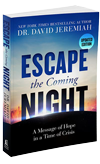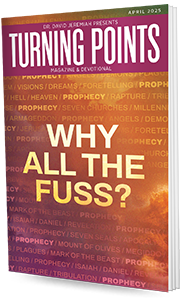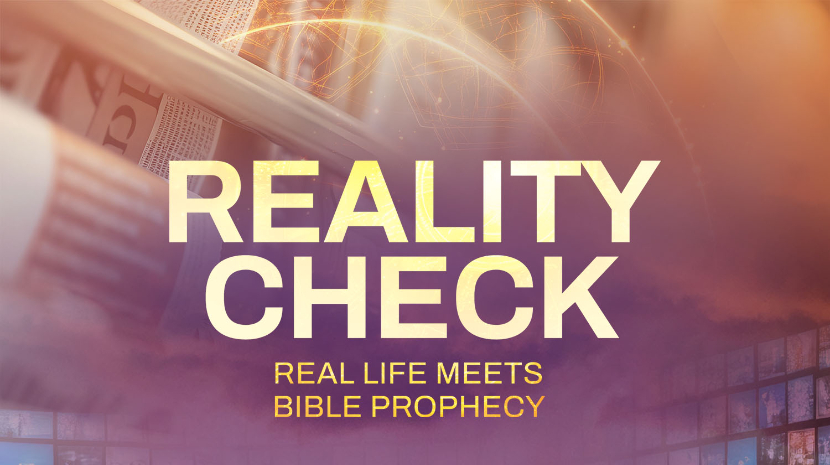From the April 2025 Issue

Online Exclusive: From This Point Forward
The World Forever
Counseling is draining work, especially when you don’t see progress in the one you’re trying to help. For example, psychologist Jennice Vilhauer wasn’t getting anywhere with a client who was battling depression. After working with the man six months, there seemed to be no let up to his depression. During counseling sessions, the man simply rehashed his problems and his bleak circumstances. He couldn’t break out of a negative cycle.
One day Dr. Vilhauer, after listening yet again to the man’s litany of complaints, abruptly asked, “So where is the light at the end of the tunnel?”
Without a hopeful attitude about tomorrow, we can’t make the best use of today.
“Well, no wonder you are depressed,” she told him. “From now on, the focus of our work together is going to be creating that light at the end of the tunnel.”
That incident became an epiphany for Vilhauer. She began asking all her clients about their light at the end of the tunnel, and she realized most of them didn’t have one. People were caught in melancholy and felt a sense of hopelessness about the future. They felt things tomorrow would be just as bleak or worse than today. Dr. Vilhauer learned people need Future-Directed Therapy. She wrote, “Although we often think the past dictates our behavior, the future is what really motivates most of our actions.”1
Vilhauer’s work in psychology isn’t centered on biblical prophecy, but her observations affirm what I believe about the importance of the book of Revelation and other prophetic portions of Scripture. What we think about the future determines how we live today—how we think and feel and act. Without a hopeful attitude about tomorrow, we can’t make the best use of today. Without an awareness of Christ’s return, we lose our sense of excited urgency. Without an eternal future, there’s no hope in the infernal present.
We need to look beyond the circumstances in our world today to see the glorious future God has planned for us. Revelation helps us see beyond today and even beyond tomorrow. It opens the doors of eternity and lets us know the joys awaiting us in the forever world.
Men Who Didn’t Read Revelation
Without an eternal future, there’s no hope in the infernal present.
The apostle Paul never read this book, for most scholars believe John wrote Revelation some years after Paul was martyred. But Paul knew much of the material firsthand. Speaking of himself, he wrote in 2 Corinthians 12:2-4, “I know a man in Christ who fourteen years ago—whether in the body I do not know, or whether out of the body I do not know, God knows—such a one was caught up to the third heaven…. Caught up into Paradise and heard inexpressible words.”
Though Paul didn’t read Revelation, he received great insights into the Last Days. He told the Thessalonians, “For this we say to you by the word of the Lord, that we who are alive and remain until the coming of the Lord will by no means precede those who are asleep. For the Lord Himself will descend from heaven with a shout, with the voice of an archangel, and with the trumpet of God. And the dead in Christ will rise first” (1 Thessalonians 4:15-16).
We need to look beyond the circumstances in our world today to see the glorious future God has planned for us.
Stephen never read the book of Revelation. He was stoned to death—the Church’s first martyr—in Acts 7, but while under attack he was given a preview of the realities that would later fill the pages of Revelation. The Bible says, “But he, being full of the Holy Spirit, gazed into heaven and saw the glory of God, and Jesus standing at the right hand of God, and said, ‘Look! I see the heavens opened and the Son of Man standing at the right hand of God!’” (Acts 7:55-56) He was more excited in the moment of his death than any time during his life, and he died saying, “Lord Jesus, receive my spirit.… Lord, do not charge them with this sin” (Acts 7:59-60).
Peter never read the book of Revelation, because he likely died before it was composed. But his heart was full of the Word forever. He previewed the contents of Revelation in 2 Peter 3, writing, “What manner of persons ought you to be in holy conduct and godliness, looking for and hastening the coming of the day of God, because of which the heavens will be dissolved, being on fire, and the elements will melt with fervent heat? Nevertheless we, according to His promise, look for new heavens and a new earth in which righteousness dwells” (verses 11-13).
Most of the heroes of Scripture went to heaven before John wrote the Bible’s last book, which describes the heavenly city. Yet they looked forward to “the city which has foundations, whose builder and maker is God” (Hebrews 11:10).
Those Who Can Read Revelation
If the heroes of Scripture lived in the light of the truths of the world forever, though most of them didn’t have the book of Revelation, what about those of us who do have this glorious book? We have the final and completed Scriptures, including the closing pages that tell us of the glorious power of the throne of God; the Rapture of the Church; the Tribulation to engulf the world; the ministry of the two witnesses; the evil trinity of the devil, the Antichrist, and the False Prophet; the final judgments; the Battle of Armageddon; the return of Christ; the Millennium; the new heaven and the new earth; and the city of New Jerusalem with its foundations, walls, gates, and streets. God’s servants shall worship Him there. We shall serve Him, and so shall we ever be with the Lord.
How sad to have the contents of Revelation in our possession yet live in discouragement and defeat! How wrong to wallow in our failures. How tragic to yield to our troubles. How heartbreaking to live a joyless life when we have such a hopeful future.
What’s troubling you today? While our troubles are real, perhaps we should ask what is troubling us: What will our lives be like fifty years or a hundred years or a thousand years or a million years or a billion years from now?
Revelation helps us see beyond today, beyond the problems, beyond the circumstances, beyond illnesses and hate and fear. The Bible promises a glorious time for God’s people, when “God Himself will be with them and be their God. And God will wipe away every tear from their eyes; there shall be no more death, nor sorrow, nor crying. There shall be no more pain, for the former things have passed away” (Revelation 21:3-4).
Examining Revelation can be empowering. It can change your attitude this very day; frankly, something is terribly wrong if it doesn’t. The truths of Revelation give us insight, hope, joy, peace, power, and a sense of mission. Paul, Stephen, and Peter understood these things, but they didn’t have the joy of reading Revelation.
We do! We should live today in the light of eternity. We should love in the light of eternity. And we should seek to bring others to the same Jesus who is preparing a place for us.
The light at the end of the tunnel of history is described in Revelation—and it’s a Person. “The Lamb is its light…. There shall be no night there…for the Lord God gives them light. And they shall reign forever and ever” (Revelation 21:23; 22:5).
Let’s walk in His light today!
Citations:
1Jennice Vilhauer, Think Forward to Thrive (Novato, CA: New World Library, 2014), 1-3.
This Month's Magazine Resource

Escape the Coming Night
Studying biblical prophecy might seem overwhelming, especially diving into the book of Revelation. But as Dr David Jeremiah walks you step by step through Revelation, you will uncover the meaning of terms and events and gain a deeper knowledge of Bible prophecy.
Subscribe Now
Each month, read articles and devotionals from Dr David Jeremiah that will encourage, challenge, and strengthen your walk with the Lord.

















